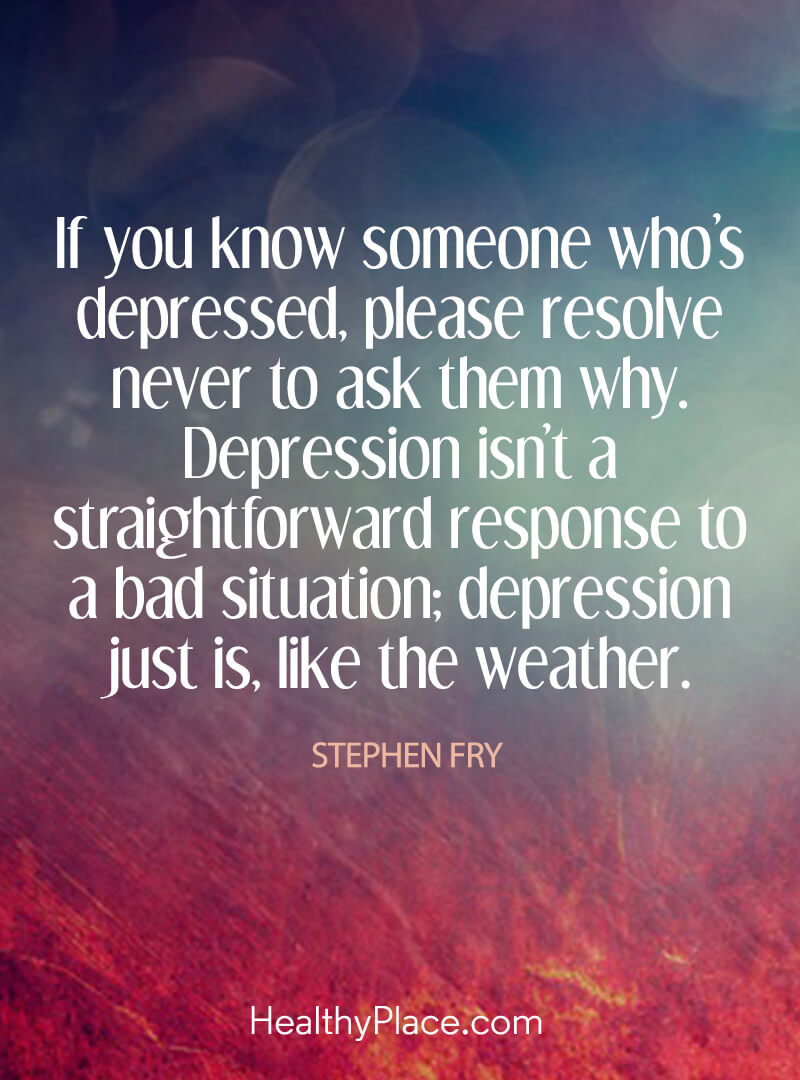

This means that seeking early help for your child is the best thing you can do. Getting help for pre-teens and teenagers with depressionĭepression is unlikely to go away on its own, but pre-teens and teenagers with depression usually get better with treatment. People who are depressed are at increased risk of suicide. Call Lifeline on 131 114, or go to your GP, a mental health service or a hospital emergency department.
Depression i want to due professional#
If your child tells you they’re having persistent thoughts about hurting themselves or that they want to die, seek urgent professional help.

That’s why it’s important to seek help from a health professional if you have any concerns about your child’s emotions or behaviour. School problems or behaviour changes can hide an underlying mental health problem. The signs might be ongoing, or they might seem to come and go over a period of weeks or even months. Your child might have more than one sign of depression. have sleeping problems – for example, insomnia, oversleeping or staying in bed for most of the day.have vague or unexplained physical problems – for example, stomach aches, nausea or headaches.be eating too little or overeating, which is causing changes in their weight.feel tired, unmotivated or low in energy.have unexpected changes in their academic performance.stop contacting or seeing friends or going to social activities – for example, your child might not want to go to a friend’s party, or your child might say that they feel lonely.feel worthless or feel guilty and blame themselves for things – for example, your child might say, ‘It’s all my fault’ or ‘I’m a failure’.have angry outbursts that are out of character.not be interested in or enjoy activities that they used to like.feel sad, tearful, moody or irritable – your child might say they feel ‘empty’ or ‘numb’.have negative thoughts that are hard to change or ignore, including thoughts about self-harm, death or suicide – for example, your child might say, ‘Life’s not worth living’ or ‘I can’t do this anymore’.



 0 kommentar(er)
0 kommentar(er)
